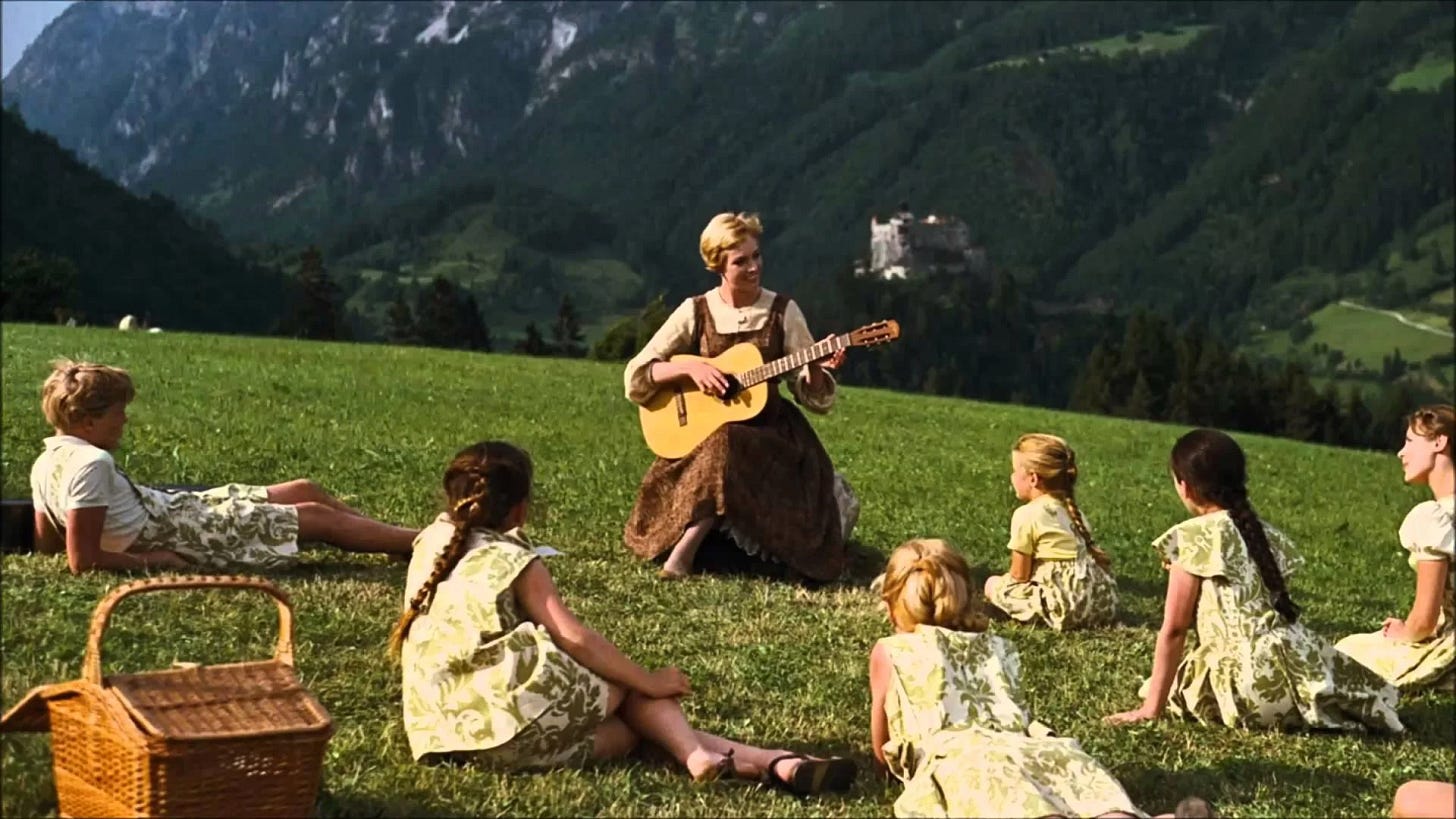Classrooms Should Be Alive With The Sound of Reading
It is time to start at the very beginning if we are going to give students the gift of literacy.
One of my all-time favorite movies is “The Sound of Music”. One of the most talented female voices has to belong to Julie Andrews. Hired as a governess, her character, Maria quickly develops a rapport and relationship with the Von Trapp children, and they are eager to learn everything she wants to teach them. In one scene early in the movie, they are atop a beautiful hillside running, playing, and laughing. She gathers them together and tells them they are going to learn a song for the Baroness. Their father has forbidden the children from singing since their mother’s death, so singing, songs, and music are foreign to them.
In the scene, Maria sits with her guitar and begins to sing the song slowly, “Let’s start at the very beginning, a very good place to start. When you read, you begin with ABC. When you sing you begin with Do-Re-Me.” (Rogers & Hammerstein, 1965) At first, the children are happily singing along and mimicking her words. When she adds more notes and picks up the tempo, they fall silent and are confused. Being the patient and intuitive teacher she proves to be, she stops and readjusts her method. That method involves breaking things down into smaller chunks and adding references to things the children can relate to as a way of helping them remember.
That scene on the hillside reminded me of young elementary students who may be introduced to reading for the first time in the kindergarten classroom. (Most kindergarten teachers seem to have a touch of Julie Andrews in them, don’t they?) Things generally start pleasantly enough, and the pace is typically slow. Students joyfully “read along” mimicking their teacher. However, as the school year progresses, more words, harder books, and more difficult tasks involving literacy are added to the mix. Those familiar with reading and have more expansive vocabularies and knowledge bases can usually keep up. The others are like the Von Trapp children who fall silent and become confused.
If teachers were to respond according to the example of Maria, they would readjust their methods, break things down into smaller chunks, and increase core knowledge and vocabulary to improve the success rate for student literacy. Unfortunately, for decades, many elementary schools have implemented literacy programs that didn’t function that way. Rather than breaking things down into smaller chunks, they adopted the philosophy that simply adding more words and books would solve the problem. It would have been like Maria adding more songs before the children grasped the concept of singing the basic tune. Based on the results from the National Assessment of Educational Progress (NAEP), that method or philosophy failed to achieve the goal.
The failure of programs and approaches such as Leveled Literacy, Balanced Literacy, and Whole Word Reading was evident in Emily Hanford’s podcast, “Sold A Story”. She exposed to the general public what many teachers and parents already suspected: children weren’t really learning to read. It remains to be seen how the information regarding the failed reading methods adopted by many public schools will impact future instruction, but it has never been clearer that change is needed.
Looking back on the scene from “The Sound of Music”, it is important to note that even the older children needed the song broken down into smaller chunks. That will be true for older students in the schools as well. Young elementary students can “start at the very beginning” and most will catch on quickly. In some cases, the older students will need to go back and start at the beginning. Many have missed key elements of literacy, and to move on as highly proficient readers and not simply functionally literate students, they will need focused direct instruction.
Being confronted with failure and facing criticism can be tough but it can provide the opportunity to make necessary adjustments to a method, system, or routine in need of improvement. Millions of parents of public school students are cautiously optimistic that reading instruction adjustments are on the horizon. If this next generation gains the necessary literacy skills and becomes highly proficient readers, some are bound to enter the teaching profession. When they do, they will pass along what and how they learned to their students continuing the cycle of cultivating classrooms that are alive with the beautiful sound of reading.
Rogers, R., & Hammerstein, O., II (Directors). (1965). The Sound of Music [Film].


